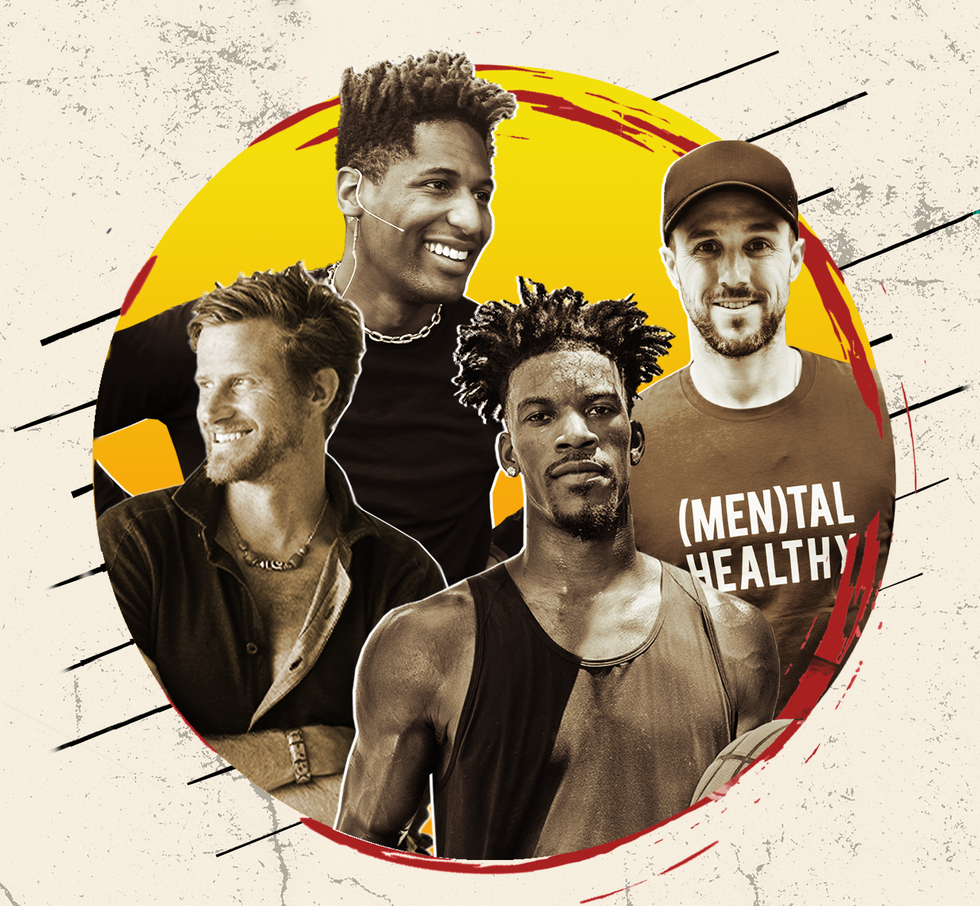WHEN YOU break your leg, the first thought that enters your brain is probably not, “Oh no, how am I going to tell someone that I broke my leg? What will they think of me?” It’s probably something closer to, “Holy crap, I broke my leg and I need to get some help as soon as possible.”
And although your mental health is as important as your physical health in terms of your overall wellbeing, people tend to struggle with asking for help when it comes to issues that others can’t see. This aversion to talking openly about mental health not only makes life more difficult for so many people. In fact, it’s literally killing them.
It’s never been more important to normalize conversations about mental health. That’s why we convened a roundtable as an extension of our Men(tal) Healthy campaign in collaboration with Rhone featuring four influential men, led by Drs. Drew Ramsey and Gregory Scott Brown, the co-hosts of Friday Sessions and Men’s Health advisors. Joining Dr. Ramsey, Dr. Brown, and myself were NBA star Jimmy Butler, addiction specialist and Bachelorette alumnus Zac Clark, recording artist and Late Show with Stephen Colbert bandleader Jon Batiste, and National Geographic photographer Cory Richards. Over the course of an hour, we talked about vulnerability, mental health turning points, and strategies for finding more joy in life.
Gregory Scott Brown: What inspired you to open up about mental health?
Cory Richards: I was on an expedition in Tibet. Especially after I’d gone to rehab and into treatment for alcoholism, I started opening up more and more about [mental health]. But then I was in a position where I honestly felt like I didn’t have anybody to talk to. So I started talking at my audience. It was more of a reflex [because] I didn’t have any other resource. In some ways, I think it was a rudimentary attempt at speaking about mental health to an audience, but it ended up being more of an overshare. What it did was open that door because the feedback that came in was actually really positive, even though it wasn’t articulated very well. All of a sudden, I was like, “Oh, this can be meaningful for people.”

Cory Richards.GETTY IMAGES
Brown: Cory, you push your body and your mind to its limits as an adventurer. How has that played a role in helping you learn more about yourself?
Richards: Well, first and foremost, like I’m writing a lot about this right now. So there’s a lot of discovery that’s coming through that process. In some ways, I think the physical pursuit was at times its own addiction. At times, it was sort of a coping mechanism. And then other times, it could be a positive outlet for anxiety, angst, artistic expression. What’s interesting to me is that it has occupied both spaces, right? When, when I’ve been really struggling, oftentimes, I’ve run to things like photography and climbing as a sort of escapism, and then other times I’ve allowed it to be an expression. So it’s both helped and been a maladaptive behavior at times. It occupies both spaces.


